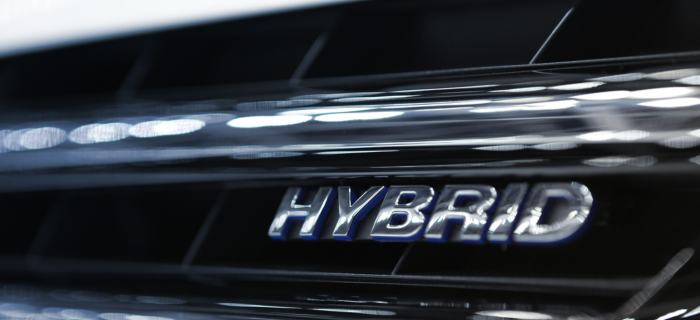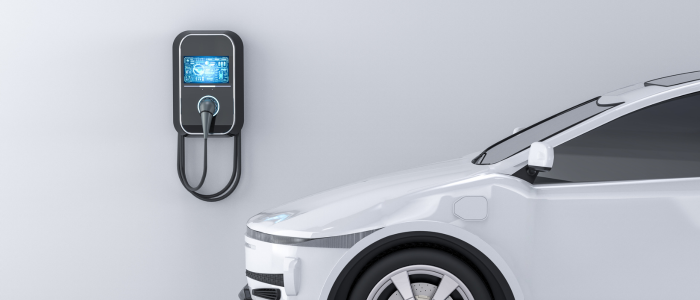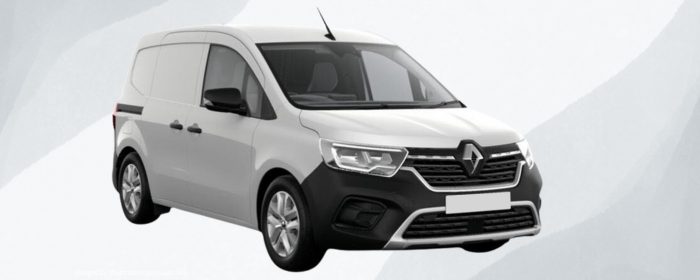
Opinion: Are hybrid cars worth it?
With increasing concern for the environment and fluctuating fuel prices, the automotive industry has witnessed a significant shift towards more sustainable and fuel-efficient alternatives. Among these alternatives, hybrid cars have emerged as a compelling choice for many consumers. But are hybrid cars truly worth the investment? This question looms large in the minds of prospective customers, as they weigh the potential benefits against the upfront costs. In this article, GB Vehicle Leasing delve into the world of hybrid vehicles, examining their advantages and drawbacks, to help you make an informed decision about whether to choose a hybrid car.
Understanding Hybrid Cars
Hybrid cars represent a pivotal stride in the automotive industry's pursuit of sustainability and fuel efficiency. At its core, a hybrid car combines two distinct power sources to propel itself – an internal combustion engine and an electric motor. These two powerhouses work in tandem, maximising efficiency and reducing emissions.
When you start a hybrid car, it can operate in three primary modes. At lower speeds or when cruising, the electric motor alone can power the vehicle. This mode relies on a high-voltage battery pack to store and provide electricity. When the battery's charge depletes or during high-speed acceleration, the internal combustion engine takes over, providing the necessary power. During more demanding driving conditions, such as motorway speeds or steep inclines, both the combustion engine and electric motor collaborate to deliver optimal performance.
Over the years, hybrid technology has evolved, resulting in different types of hybrid systems catering to various needs. Here are the most common ones:
1. Mild Hybrid: In mild hybrids, the electric motor primarily assists the combustion engine, enhancing fuel efficiency and reducing emissions. However, these vehicles cannot operate solely on electricity.
2. Full Hybrid: Full hybrids can run on electric power alone for short distances and at lower speeds. They also use regenerative braking to recharge the battery, making them highly efficient in city driving conditions.
3. Plug-in Hybrid: Plug-in hybrids, also known as PHEVs, offer the longest electric-only range. They have a bigger battery pack that can be charged via a standard electrical outlet. This allows for extended all-electric driving, thereby diminishing their dependency on conventional fuel.
Recently, the popularity of hybrid cars has surged, with several renowned automakers introducing hybrid models to their lineups. Hybrid cars are undoubtedly changing the landscape of modern mobility, offering an eco-friendlier and more efficient alternative to traditional vehicles. Currently, some of the most noteworthy hybrid car models include the Kia Niro Hybrid, Toyota Prius, Lexus NX 350h and BMW X5 xDrive50e. Whether you prioritise fuel economy, environmental impact, or cutting-edge tech, there's likely a hybrid car on the market that aligns with your preferences and values.
Advantages of Hybrid Cars
1. Fuel Efficiency and Reduced Emissions
One of the most significant advantages of hybrid cars is their superior fuel efficiency. By utilising an electric motor alongside a combustion engine, hybrids can significantly reduce fuel consumption, particularly in city driving conditions where the electric motor often takes the lead. This results in fewer trips to the fuel station, reduced fuel costs, and a smaller carbon footprint. Reduced emissions also contribute to cleaner air and a healthier environment.
2. Regenerative Braking
Hybrids employ regenerative braking technology, which captures energy typically wasted as heat during braking and converts it into electricity to recharge the battery. This innovative feature not only improves fuel efficiency but also extends the life of the braking system, reducing maintenance costs.
3. Quiet Operation
Hybrid cars are known for their quiet operation, especially when running in electric mode. This not only provides a more serene driving experience but also helps reduce noise pollution in urban areas.
4. Potential Long-Term Cost Savings
While hybrid cars typically come with a higher upfront cost, their long-term cost savings can outweigh this initial investment. Reduced fuel expenses, lower maintenance costs, and potential incentives can all contribute to a more economical ownership experience over time.
5. Diverse Options
Customers have a wide selection of hybrid models to pick from, including hybrid SUVs, compact cars, saloons and even luxury cars. This diversity ensures that there's a hybrid car to suit various preferences and needs.
6. Environmental Impact
Through their ability to reduce fuel consumption and emissions, hybrid cars play a pivotal role in reducing greenhouse gas emissions and combating climate change. Opting for a hybrid vehicle is a conscious step toward a greener and sustainable future.
Drawbacks of Hybrid Cars
1. Higher Initial Cost
One of the most significant drawbacks of hybrid cars is their upfront cost. Hybrid technology involves complex systems, including batteries and electric motors, which can substantially increase the purchase price compared to traditional vehicles. While long-term savings on fuel and maintenance may offset this initial expense, it remains a significant barrier for some customers.
2. Limited Electric-Only Range
While some hybrid models offer electric-only driving at low speeds for short distances, many cannot operate solely on electric power for extended periods. This limitation can be frustrating for those looking to minimise their reliance on petrol or diesel.
3. Limited Model Choices
While the selection of hybrid models has increased over the years, there may still be limited options in certain vehicle categories, such as pickup trucks or larger SUVs. Customers with specific needs or preferences may find their choices limited.
4. Dependency on Charging Infrastructure
For plug-in hybrid models, owners rely on charging infrastructure to maximise electric driving. In some regions, access to charging stations may be limited, making it challenging to take full advantage of the electric mode.
5. Reduced Boot Space
Hybrid cars often have smaller boot space compared to their non-hybrid counterparts. This is due to the need to accommodate the hybrid battery pack, which takes up space that would typically be available for cargo storage.
How Long Do Hybrid Batteries Last?
The lifespan of hybrid batteries can vary significantly depending on several factors, including the type of hybrid system, the manufacturer's design and quality, and how the vehicle is driven and maintained. On average, most hybrid batteries are designed to last between 8 to 15 years or around 100,000 to 200,000 miles.
It's important to note that while hybrid batteries may eventually degrade and lose capacity, they usually don't suddenly fail. Instead, their performance gradually diminishes over time. In many cases, when the battery reaches the end of its useful life, it can be refurbished or replaced, although battery replacement can be a significant expense. It's advisable to consult your vehicle's owner's manual and warranty information for specific details on the battery's expected lifespan and warranty coverage, as this can vary between manufacturers and models.

Cost Savings & Incentives
When considering a hybrid car, one of the key factors to weigh is the potential for cost savings and the availability of financial incentives. In this section, we will explore how hybrid car customers can benefit from various incentives and calculate potential long-term savings.
Financial Incentives for Hybrid Cars
Governments and local authorities have recognised the importance of decreasing greenhouse gas emissions and promoting cleaner transportation. As a result, many offer financial incentives to encourage the adoption of hybrid cars. Nevertheless, these incentives may change over time so it’s best to research the most up-to date information in order to make a decision.
Long-Term Cost Savings
Fuel Savings: Hybrid vehicles are celebrated for their exceptional fuel efficiency, particularly when navigating urban settings with frequent starts and stops. Over the long term, these fuel savings can accumulate substantially, proving especially advantageous for those with lengthy commutes or who regularly drive in stop-and-go traffic.
Reduced Maintenance Expenses: Hybrid cars generally need less frequent maintenance compared to their non-hybrid counterparts. This is attributed to the benefits of regenerative braking and the utilisation of the electric motor, which can reduce wear and tear.
The Future of Hybrid Cars
As technology in the automotive industry continues to evolve at an unprecedented pace, the future of hybrid cars is a topic of keen interest. Hybrid technology is not static; it's continuously evolving to improve efficiency, reduce emissions, and enhance overall performance. For example, hybrid cars are likely to benefit from ongoing advancements in battery technology. Lithium-ion batteries are becoming more efficient, compact, and affordable, which can lead to longer electric-only ranges and improved overall efficiency.
Furthermore, manufacturers are investing in the development of next-generation hybrid systems, including plug-in hybrids with extended electric-only ranges and more powerful electric motors. These improvements could make hybrid vehicles even more appealing to a broader range of consumers. Also, more hybrid models are being introduced as time goes on which could further enhance the worthiness of hybrid technology.
While hybrid cars have played a crucial role in the transition to greener transportation, there are broader trends in the automotive industry that could impact their worthiness. In particular, electric cars are gaining momentum as battery technology improves and charging infrastructure expands. EVs offer zero-emission driving, and their long-range capabilities are reducing range anxiety, making them a compelling alternative to traditional hybrids. As well, hydrogen fuel cell vehicles are another eco-friendly option gaining attention. As hydrogen infrastructure develops, hydrogen vehicles may compete with hybrids for eco-conscious consumers.
Conclusion
In this comprehensive exploration of hybrid cars, we've delved into the advantages and disadvantages of these innovative vehicles, explored their cost-saving potential, and contemplated their future. Now, it's time to summarise our key findings and offer some parting thoughts.
Summarising the Main Points:
Hybrid cars offer numerous advantages, including superior fuel efficiency, reduced emissions, and quieter operation.
They come with drawbacks, such as a higher initial cost, limited electric-only range, and reduce boot space.
Hybrid technology is evolving, promising even more efficiency and diversity in model choices.
So, Are Hybrid Cars Really Worth It?
The answer to whether hybrid cars are worth it depends on your individual circumstances, needs, and priorities. If you value fuel efficiency, reduced emissions, and potential long-term cost savings, a hybrid car could be an excellent choice. The availability of financial incentives can sweeten the deal, especially in regions with favourable policies.
However, if you have concerns about the higher initial cost or require a longer electric-only range, you might want to explore fully electric or plug-in hybrid options. The evolving technology in the automotive industry offers an exciting array of choices, each with its advantages and considerations.
Ultimately, the worthiness of a hybrid car is a deeply personal decision. Before making a choice, consider your daily commute, driving habits, and environmental values. Explore the available incentives in your region, compare the total cost of ownership, and explore the variety of hybrid and alternative fuel vehicles on the market.
Latest Posts

Discover Your Perfect Halloween Car Match
Find Your Halloween Ride: Which Spooky...

Jeep Avenger Review 2024
Meet the Jeep Avenger, the brand’s...

A Comprehensive Kia Stonic Review
See for yourself if this could...

Cheap Vans to Lease 2024
Let's explore some of the cheapest...

Exploring Excellence: Isuzu D-Max Review 2024
In this Isuzu D-Max review, we'll...


































